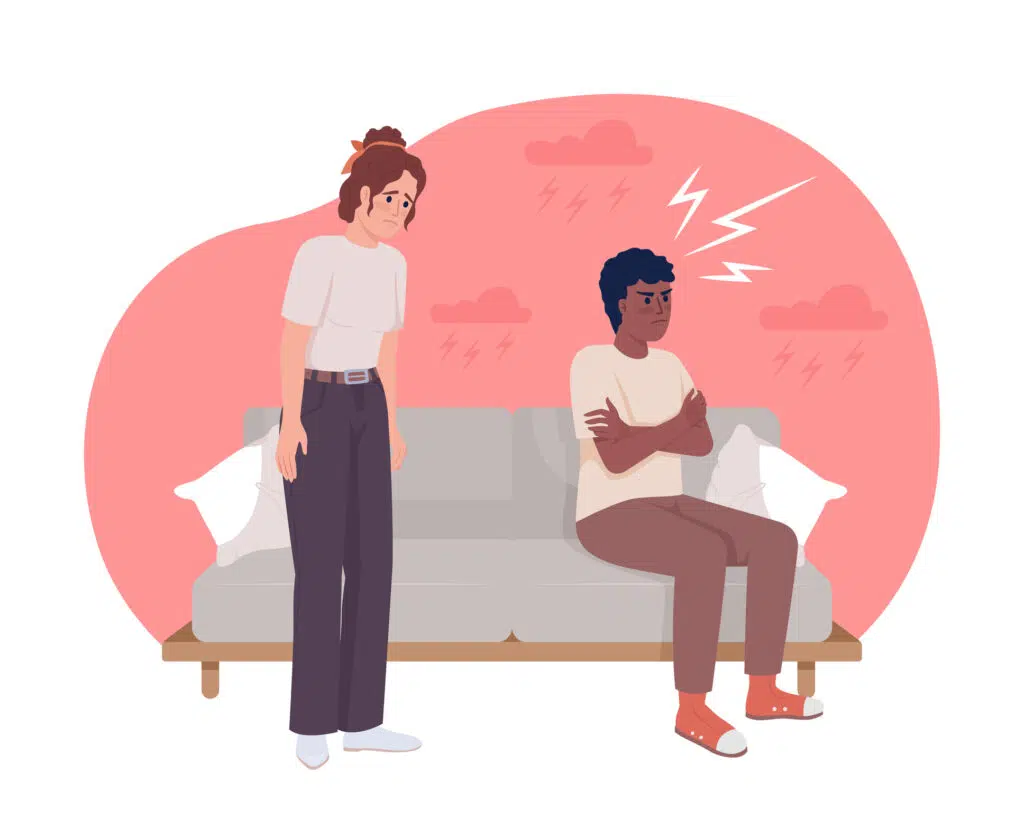Sleep Hygiene: 10 Things To Help You Get To Sleep Fast And Stay Asleep!

The average person spends about a third of their life asleep. That’s about 26 years. It’s easy to overlook the importance of sleep. But without enough quality sleep, your brain and body simply can’t function properly. Consistent and good quality sleep can maximize so many areas of your life, from stress management and health to focus and productivity at work. In this article, learn 10 things you can do to improve your sleep hygiene to fall asleep faster and stay asleep.
What Is Sleep Hygiene?
Sleep hygiene is a term used to describe everything you can do or adjust to get a good night’s sleep. It includes healthy sleep habits, behaviors, and environmental elements you can edit to help create a healthy sleep routine.
When we talk about getting a good night’s sleep, it means getting enough consistent and uninterrupted sleep where you fall asleep and wake up at a similar time each day. While it can feel like sleep is one of those things that comes to everyone, a surprising number of people don’t get enough sleep.
Several factors influence your ability to get and stay asleep, including:
- Stress
- Pain
- Mental health issues
- Sleep disorders
- Snoring
- Light
- Jet lag
- Caffeine and alcohol
- Medication
- Sleep environment
50 to 70 million Americans struggle with chronic or ongoing sleep disorders. The Casper-Gallup State of Sleep in America 2022 Report found that only 32% of Americans say they got “excellent” or “good” sleep the night before. Interestingly, those who rate their mental health highly are six times as likely to get high-quality sleep. Unsurprisingly, 7 in 10 young Americans say sleep directly impacts their mood.
Chronic sleep deficiency is closely associated with the following:
- Higher chance of injury
- Obesity
- Weight gain
- Anxiety
- Depression
- Poor cognitive function
- Increased stress responsivity
- Reduced quality of life
If you have spent the night tossing and turning, you will undoubtedly know how it feels to not get enough sleep. It’s difficult to think, your mood can feel lower, and dealing with everyday stress sometimes seems impossible.
According to sleep expert Dr. Matther Walker, sleep makes us healthier, smarter, and more productive. Yet, many are experiencing a sleep-loss epidemic.
“Sleep is the single most effective thing we can do to reset our brain and body health each day” – Dr. Matther Walker.
So, how much sleep do you really need?
The National Sleep Foundation states that most adults need between seven to nine hours of sleep each night. Figuring out how much sleep you need is individual and based on a few factors like:
- How productive and energetic you feel
- Your activity level
- Whether you depend on caffeine
- If you have health issues where you need more rest
Sleep Hygiene Tips: 10 Strategies for Better Sleep
If you’re struggling to fall and stay asleep, you can develop good sleeping habits to promote a better night’s sleep.
- Create A Peaceful Bedtime Routine
To create the best sleeping environment, focus on building a relaxing space and bedtime ritual. This could be having a warm bath, reading a chapter of your book before bed, or listening to music. Your pre-bedtime routine lets your body and mind know it’s ready to shut down and sleep. Keep your bedroom cool, comfortable, and quiet. Several apps offer sleep stories and meditation to help create good sleep habits, such as:
- Calm
- Headspace
- Manage Stress
Sleep is an essential human function. It’s so important that even a small amount of sleep deprivation can affect mood and judgment. Research shows that, on average, adults with lower stress levels sleep longer at night than those with higher stress levels. Other ideas to reduce stress before bed include:
- Write down any worries before bed on paper
- Meditate or practice calming breathing techniques
- Take regular exercise
- Go To Bed At The Same Time Each Day
Like any healthy habit, consistency is key when it comes to sleep. Going to bed and waking up at the same time each day reinforces your sleep-wake cycle. Try to create a consistent sleep schedule that works for your routine. Choose a bedtime that gives you at least seven hours of sleep every night.
- Set The Right Temperature
Your internal temperature and the room temperature have a role in falling and staying asleep. A drop in your body’s temperature sends a signal throughout the body that you are preparing for sleep. The decrease in temperature occurs alongside the release of the sleep hormone melatonin. Turning down the thermostat may help to signal your mind and body that it’s time to go to bed. It’s recommended that the optimal sleep temperature in the room should be between 60 and 67° F for adults. Body temperature can affect both sleep quality and the time you spend in the stages of sleep. Matthew Walker’s podcast on Temperature dives deeper into the effects of temperature and sleep.
- Morning Light Exposure
Another useful tip for falling asleep faster is getting out in the morning for 15 minutes. Sunlight in the morning signals your body that it’s time for the day to start and can help make you feel more alert. Seeing bright light in the morning can help you to fall asleep more easily at night. Light impacts your circadian rhythm, so avoid bright light two hours before bed too.
- Reduce Nicotine, Caffeine, And Alcohol
While it can feel like alcohol calms and relaxes you before bed, it can impact your sleep quality. Although alcohol can induce sleep, it can interfere with your sleep. Try avoiding alcohol four to six hours before bed.
Nicotine and caffeine are both stimulants that can keep you awake. Caffeine has a half-life of about five hours, so that cup of coffee at the 4 PM slump can still be in your system as you prepare to go to bed. Research shows that caffeine taken six hours before bed has disruptive effects on sleep.
- Avoid Daytime Naps
If you struggle with insomnia or poor sleep at night, long or frequent naps could impact your nighttime sleep. A brief nap (30 minutes or less) can promote wakefulness, but longer naps may do more harm than good. For some people, naps are essential to catch up on sleep if you have young children or work unsocial hours. But naps can make it more difficult to sleep at night. When you nap is also important; avoid daytime naps after 2 PM.
- Take Regular Exercise
Regular exercise is good for your body and mind. Evidence suggests that exercise can help you fall asleep more quickly and increase sleep quality. But, for some, exercising too late in the day may impact sleep. Exercise also helps to reduce stress, which can be beneficial for getting a good night’s rest.
- Get Out Of Bed
Bedrooms are for sleep and sex. Avoid being on your laptop, checking emails, or watching television. Switch how you see your bed from a place to hang out to a place you associate with sleep. If you can fall asleep but wake up in the middle of the night, a good rule of thumb is to get out of bed if it’s longer than 20 minutes. Sit on the couch, listen to some relaxing music, and then go back to bed when you feel sleepy.
- Watch What You Eat Before Bed
Generally, a healthy and balanced diet will provide the energy and nutrients the body needs to function well. Think about when and what you eat. So, a big dinner before bed can make you sleepy, but late digestion may impact sleep. If possible, try to avoid eating late at night before bed. Aim to eat your last meal about three hours before bed.
Sleep is incredibly complex and impacts virtually everything from mental to physical health. If you’re struggling to fall and stay asleep, developing healthy habits can help improve your sleep hygiene to feel more rested. Developing healthy habits takes time, so be patient.
While it’s normal to experience some sleep problems every so often from a stressful work deadline or a late night with friends, it shouldn’t be ongoing. If you’re struggling with sleep and feeling alert for the day, book an appointment online with one of our therapists. At Thriving Center of Psychology, we can help you address your sleep problems and formulate a treatment plan so you can feel more rested and ready to take on the day.

How to Move On After a Friendship Breakup
Friendship breakups can sting just as much as a romantic breakup. After all, you’re experiencing a loss of shared history and an understanding of each other that can leave you feeling lonely and isolated. Not all friendships are forever, but moving on from the loss of a friendship does take time and some self-compassion.

Signs You’re in a Toxic Relationship
A toxic relationship can chip away at your well-being and happiness. Toxic partners can be manipulative and charming, making it difficult to recognize the signs that you’re in a toxic relationship. You deserve to be in a supportive and healthy relationship.

10 Common Marriage Reconciliation Mistakes to Avoid After Infidelity
Infidelity can leave couples devastated. If you’ve been affected by infidelity and want to salvage your relationship, rebuild trust, or make a tough decision, keep reading for 10 common reconciliation mistakes to avoid after infidelity.

Survey: 72% of Americans are Stressing About the Upcoming Presidential Election
Political viewpoints in the U.S. have always been contentious, but is the impact of politics in the United States making it difficult for people to live their everyday lives? With some anticipating another brutal and long campaign season ahead of the upcoming 2024 presidential election, nearly half of Americans say politics is negatively impacting their mental health.




